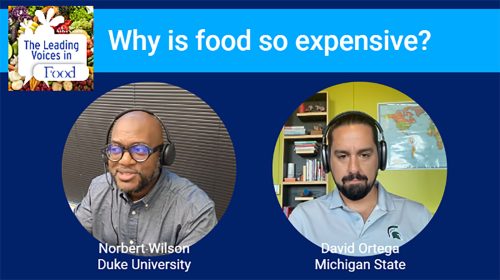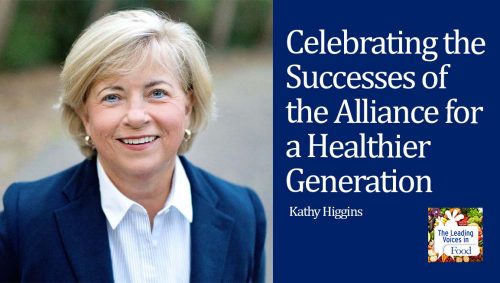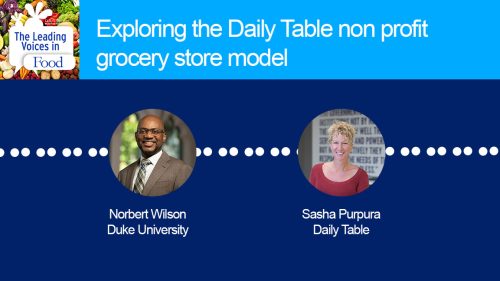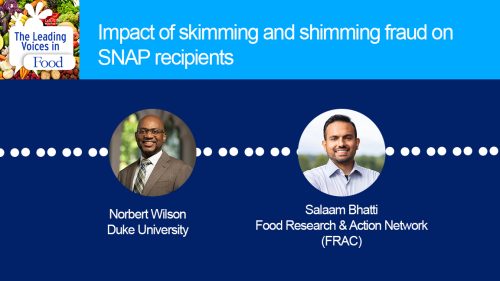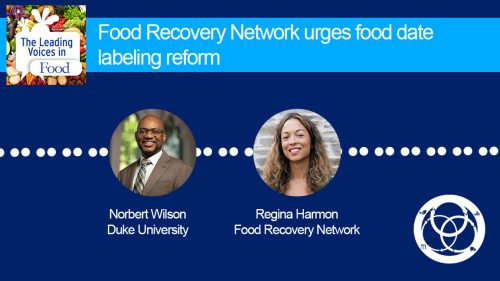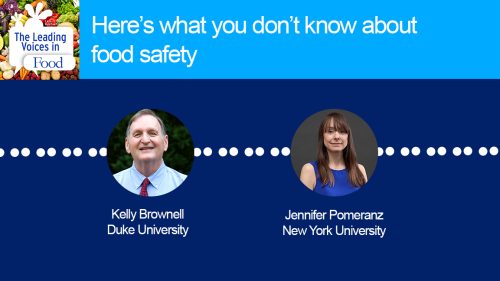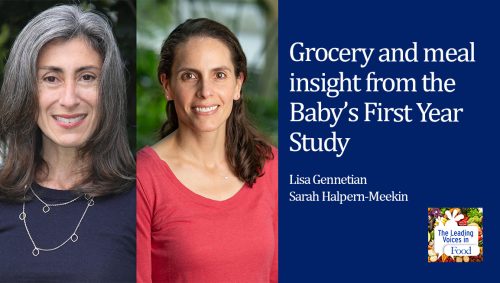E143: Improved Child Tax Credit Will Lift Many Out of Poverty
As many as 13 million children in the United States live in food insecure homes, meaning that these households don’t have enough food for every family member to lead a healthy life. Hunger is a problem that most often affects children from low-income families. And today we’re going to discuss the Child Tax Credit aimed at helping low-income families and the historic increases in the credit made through the American Rescue Plan in 2021. Our guest today is Billy Shore, the founder and executive chair of Share Our Strength, a nonprofit working to solve problems of hunger and poverty, both in the United States and around the world. Share Our Strength is also the parent organization for the well-known No Kid Hungry campaign, the national policy, advocacy, outreach, and research effort to improve childhood nutrition, support school meals, and provide resources to schools, food banks, and community groups working to end hunger.
Subscribe: Apple Podcasts | TuneIN | YouTube Music | SoundCloud | PocketCasts | Radio Public
Tags: COVID-19 Pandemic Impacts on Food | Food Insecurity | Food Policy | Social Safety Net & Food |

Billy Shore is the founder and executive chair of Share Our Strength, the parent organization for the No Kid Hungry campaign. Since founding Share Our Strength in 1984 with his sister Debbie, Billy has led the organization in raising more than $700 million to fight hunger and poverty and has won the support of national leaders in business, government, health, and education, sports and entertainment. Billy is also the chair of Community Wealth Partners, Share Our Strength’s for-profit consulting firm which provides strategic consulting to help leaders and communities solve social problems. Before founding Share Our Strength, Billy served on the senatorial and presidential campaign staffs for former U.S. Senator Gary Hart and as chief of staff to former U.S. Senator Robert Kerrey. In 2014, congressional leaders appointed him to the National Commission on Hunger, tasked with finding innovative ways to end hunger in America. He is the author of four books focused on social change, including “Revolution of the Heart” (Riverhead Press, 1995), “The Cathedral Within” (Random House, 1999), “The Light of Conscience” (Random House, 2004) and most recently, “The Imaginations of Unreasonable Men” (Public Affairs, 2010). He also hosts Add Passion and Stir, a weekly podcast that brings together high-profile chefs and change-makers to talk about the central role food plays in social justice.
Interview Summary
So the child tax credit has been around for years, but this year there was some significant, albeit temporary, changes that made it a powerful tool in fighting poverty. Could you quickly walk our listeners through what these changes have been?
The most important change for The Child Tax Credit is that Congress and the Biden administration made it fully refundable – which is a way of saying that even if you don’t earn enough money to pay taxes, you still get a check from the government somewhere between $3000 and $3360 per child. And one of the ironies of the Child Tax Credit in the past has been that many of the families who need it the most might be the least likely to get it if they weren’t earning enough to pay taxes or file taxes. Now there’s a portal that’s been developed with the Internal Revenue Service and a nonprofit called Code for America that we worked very closely with, where even if you haven’t earned any money you can file for the Child Tax Credit. And you can use those funds for food, for education supplies, for healthcare, for really whatever you need it for, for your kids. It’s estimated that it can bring 5 million children above the poverty line, which would really be absolutely transformational.
That’s a remarkable impact this could have. So just out of curiosity, are there programs or means for letting people who might be eligible for this benefit know that it exists providing help in using the portal and doing things like that?
That’s a great question because there’s an all out effort beginning right now, not just to raise awareness of the Child Tax Credit, because a lot of families are not aware of this new benefit, but to also make it more accessible. Many families are going to need technical assistance as to how to access the portal called Get Child Tax Credit (http://www.getctc.org) and then when they’re on the site, they might need assistance then as well. So there’s a major effort. If you think of this almost as like a political campaign, one of the things that Share Our Strength is doing right now as a pilot is building out a field operation in two states to see how this would go in Mississippi and in Maine. And we’ve got regional directors and field staff. And just as you would have a staff on the ground to register people to vote and to make sure they get to the polls, we’ve got a staff on the ground that is going to make sure people are aware of the tax credit, that they get to their Community Centers or the sites or the volunteer tax assistance sites that they need to get to so that they could actually file. And then as we learn from those two pilots, we’ll spread that into all 50 states.
Given that you and your organization are working to address food insecurity, why put efforts behind legislation that would address poverty rather than just food insecurity itself, providing more food for people or more benefits that provide food? Why work on poverty overall?
You know, one of the things that we’ve learned over the last 35 years of doing this work, and I would say, honestly, it took us too long to learn it, but we’ve really come to the conclusion that it takes more than food to fight hunger. And so, you know, we all have a reflex when we think about people being hungry, how do we get them food? And we think in terms of emergency food assistance and food banks and soup kitchens and programs like the school meals programs or the SNAP food stamp program, but to really end hunger in a sustainable way, it does take more than food to fight hunger.
Families have to have the financial stability. You know, when you think about hunger as a symptom of a set of deeper problems, in some ways it’s a problem in and of itself, but in many ways it’s a symptom of deeper problems of poverty and inequity, and racism. When you think about all the reasons that families are struggling today, you realize that we’ve got to do more than just provide food. And so the Child Tax Credit is the first and the largest opportunity that’s come along, probably in a generation or more, to really give families the unrestricted resources they need. And one of the things that we’ve learned just from the July tax credit payments, so just as recently as a few months ago, we found out that 47% of the families who received the tax credit used it to buy food for their families. So we know that the impact is direct. Other families, of course, used it for some of the other things I mentioned, educational supplies, healthcare, that type of thing. But food is going to be one of the biggest allocations that the child tax credit receives.
That makes perfect sense. You mentioned just how many families could be affected by this. Families now living in poverty who would have some benefit from this program. And you’ve also talked about the issue of how the child tax credit could be important in building equity. Could you speak to that?
As you know, disproportionate numbers of black and Hispanic and Asian American Pacific Islander, indigenous children, experience hunger and the Child Tax Credit has a direct impact. It also has a disproportionate impact, in a positive way, on them. So it would cut poverty by 52% for black children, by 45% for Hispanic children, by 62% for indigenous children. There are of course, a lot of white families, the majority of families who received the Child Tax Credit are likely to be white and many will receive it automatically if they’ve been filing taxes. But again, often the families that need it the most are going to be the hardest to reach. So we think it’ll have a powerful impact in establishing some equity in a sustainable basis, particularly for black and brown kids.
So you mentioned that many families will receive the Child Tax Credit automatically, but there will be several million families who qualify for the tax credit, but may not be signed up. What can they do?
There’s a new portal that’s been created. It’s in English and Spanish. As I mentioned, it’s been created by a terrific nonprofit called Code For America. And if you go to http://www.getctc.org or we have a direct portal, http://nokidhungry.org/getctc (stands for Child Tax Credit), you immediately get to a portal where you could follow the information and get a check sent to you or deposited. So it’s really going to take a massive effort to make this happen.
The current law has this Child Tax Credit in place until the end of this year, until December of 2021. Congress is now debating whether to extend it or to make it permanent. I think most practically, politically, it’s probably not going to be made permanent as much as we’d like to see that. It’ll probably get extended for three to five years. And it will take that amount of time to make sure that all the families that need it become aware of it and get the assistance they need. So we’ve got to have a long-term view of this, but you know, you and I are having this conversation in mid-September, and there was a headline today in The New York Times. Just to give you a sense of how important something like this can be, front page of The New York Times and many other papers was that as a result of the assistance programs of the last nine months, including the stimulus payments and so forth, 8.5 million Americans were lifted out of poverty. And that’s just remarkable. The poverty rate went from 11.8% to 9.1%. The lowest it’s been since they’ve been measuring poverty in this country. So it’s just a great proof point that these programs work. That the social safety net, when it’s resourced, when it’s applied the way it’s supposed to be and maintained the way it’s supposed to be, the social safety net really has the intended impact. It lifts people out of poverty and that’s good for the economy and it’s good for all of us.
Thank goodness the program is working like it is and thank goodness people are paying attention. And the article you mentioned is one way to make that more visible. So let’s follow up on this last issue you raised, that this is put in place temporarily, and it’s only in effect through December. Obviously, it would be great if this were to continue, what do you think needs to happen to make sure that it continues? And what sort of political actions might take place or data could be collected or other things that could be influential in seeing that this continues?
I think the most important thing is going to be for Congress to hear from Americans, that they want this Child Tax Credit to continue. That they’re seeing the impact of it in their own families, in their own communities that they want to live in a country that lifts kids out of poverty. We tend not to be as good at that as other industrialized nations. And, you know, Congress of course, is so evenly divided right now. The Senate completely evenly divided. The House, I think speaker Pelosi, can only afford to lose three democratic votes to get this passed. So this is one of those cases where literally every voice counts and letting your member of Congress know that this Child Tax Credit is going to be important in your community is absolutely vital. You know, when people hear about tax credits, sometimes your eyes kind of glaze over. People don’t really know a lot about the tax system or necessarily want to be involved with the Internal Revenue Service, with the IRS, and I get that. But this is one of the big positives to come out of it. And if it does become extended, I think it puts it on a path to permanence and imagine being the first generation of Americans to live in a country where we don’t have child poverty at record levels. That would be just an incredible legacy for our entire generation.

